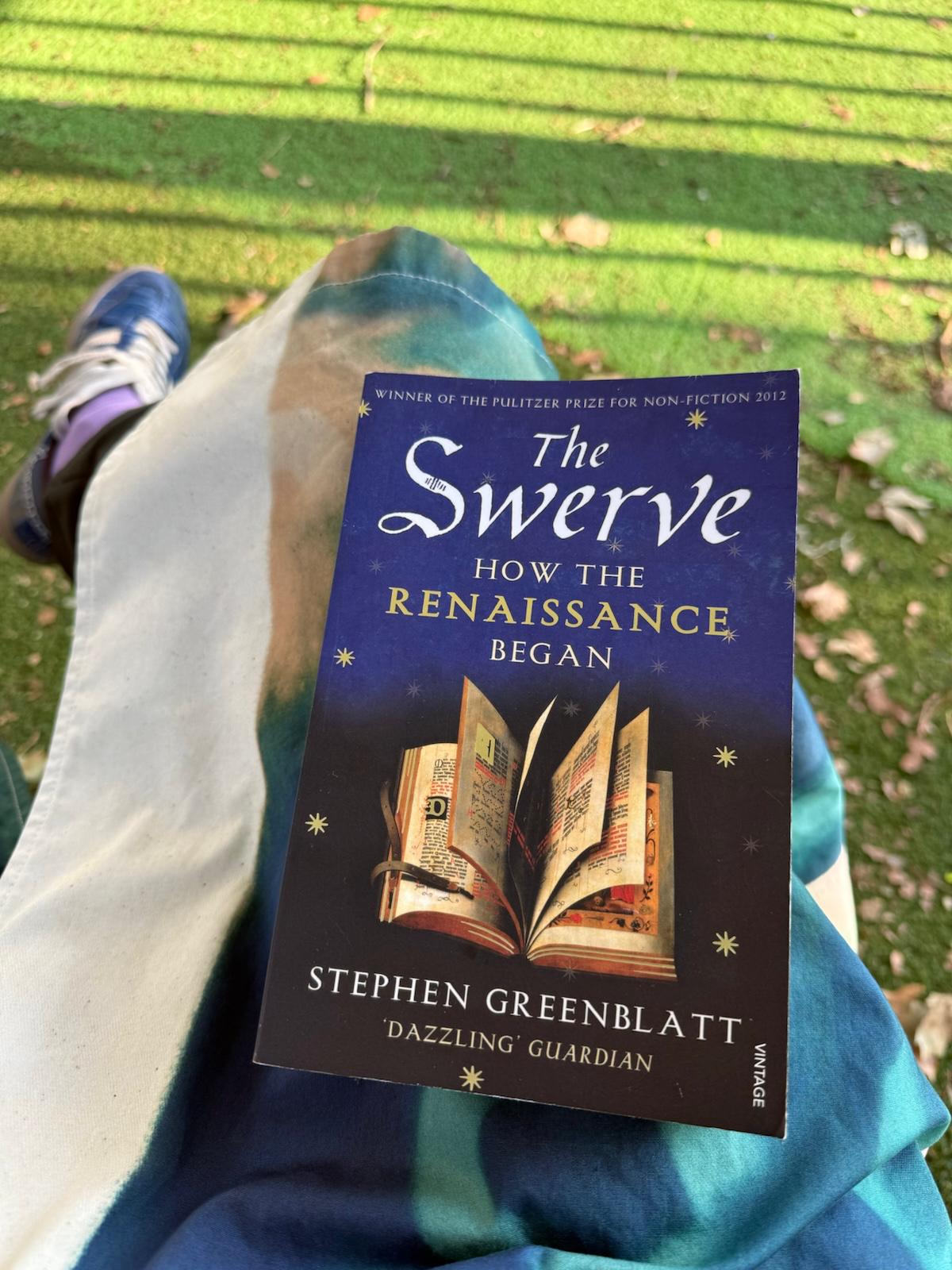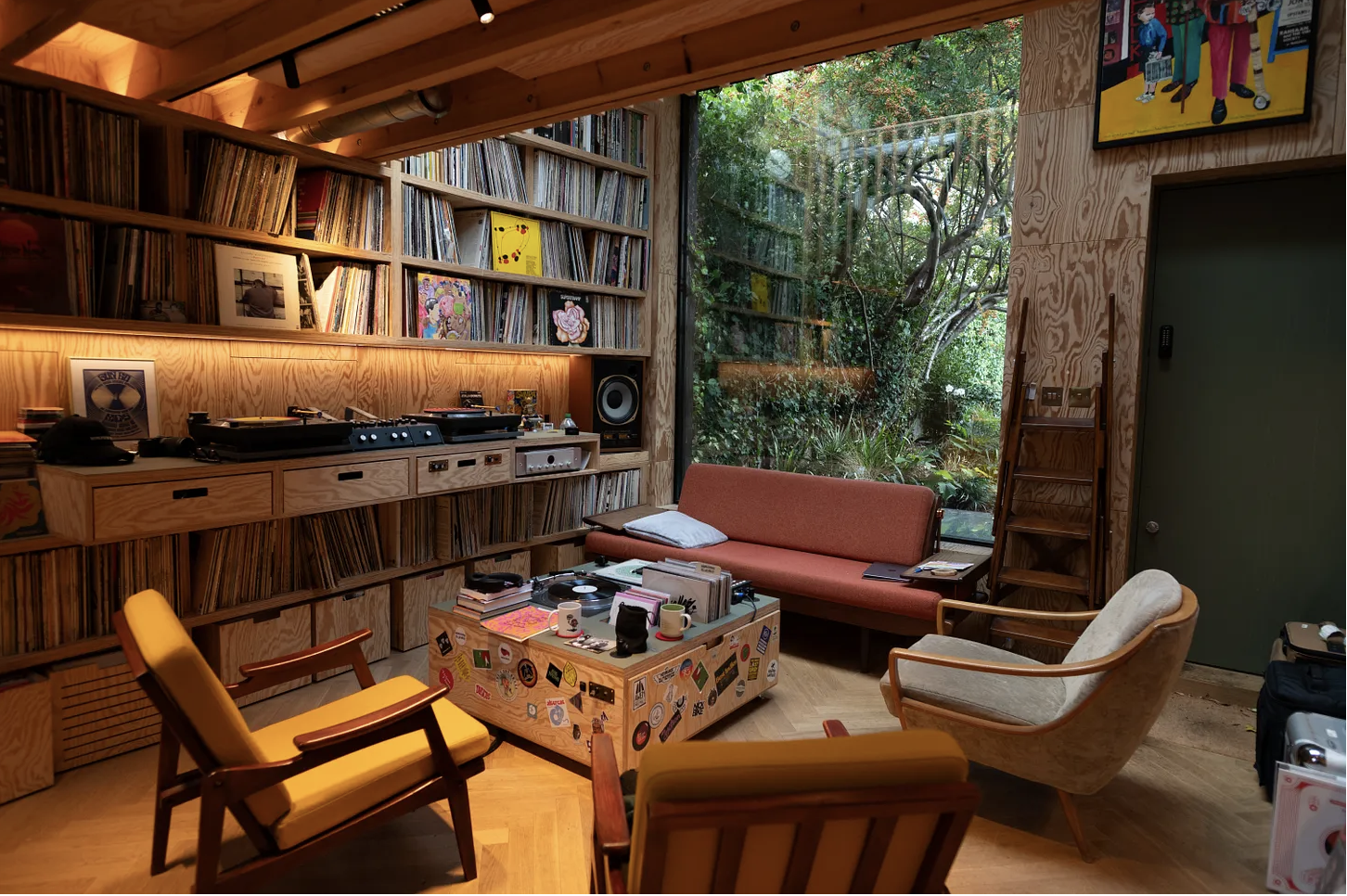the world, in reverse
Imagine: it's 1417. You are book hunter Poggio Bracciolini horseback riding up to a remote south German monastery. In the wider world, the printing press is decades away from invention; information is created and shared by the church or state in manuscripts handwritten on animal skin parchment; public libraries don't exist as a concept (they used to; they will again one day). Most people can't read or write. Most people are serfs living under the yolk of the local feudal lord. But one place you find books, writers and readers are monasteries. In a show of piety, monks have to read out loud every day. It doesn't matter what they read out loud. Because they do it daily, manuscripts wear out often and so, in another act of piety, scribes create and recreate existing manuscripts every decade or so. This has been happening for centuries. That this has been happening for centuries is the only reason Poggio is riding up to the monastery and the only reason he rifles through their stacks of manuscripts to find On the Nature of Things by Lucretius from 1300 years earlier. It's a dazzlingly written epic poem that articulates: There is no god. No master plan, no divine architect. Everything that exists - from humans to horses to the leaves of trees - has evolved over a long period of time. Made out of the same core building block, atoms, forming and reforming over and over again. Sometimes there's natural selection. Sometimes it's random. So why think any one group, like aristocrats or even humans, occupy higher ground? Why be a religious fanatic, dream of limitless power or live in self-denial if there's no escape from the constant making and remaking of forms? In this world the only path is to conquer our fears, accept that we and everyone and everything we meet is transient and embrace the beauty and the pleasure of the world. It's a wildly liberating read. So liberating that Poggio takes it back to Rome, popularizes it and this one poem, the central idea of which is so heretical that it should have been burnt a hundred times over, leads to the Renaissance; an era I love so much my son is named after the quintessential Renaissance man.
You have to read this book (another autumn highlight via Vinted; petrol blue Margiela). It left me weirdly optimistic. It's a miracle this one idea survived. It means miracles can happen more than we think. Things that made me go "wow" recently:
This post's title comes from an early October day. Because humans are contradictions, turns out you can both believe we're all atoms + still love horoscopes and tarot (I'm such an Aquarian). Dia browser has a skill where you pull a tarot card daily. This one day I got the world, in reverse. The world card symbolises unity, wholeness and balance; any card in reverse means the opposite. The world upside down means disharmony. HUH, I thought. This makes no sense. I'd just got back from a trip and felt great. There followed a day of such disaster from every side - hard incoming news, things breaking, promises broken - that it was just really funny. Actually ha ha funny. Atoms forming and reforming. A constant theme of rabbit hole seems to be to remember everything depends on how you look at it. 'Til next time, Sarah |


